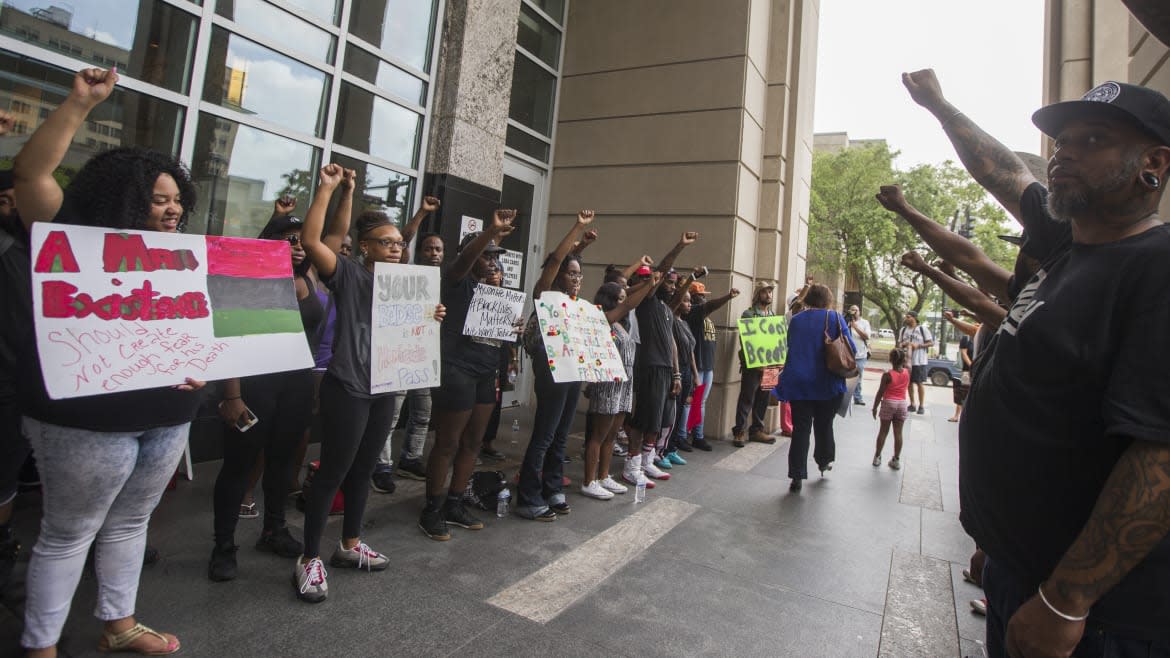SCOTUS Strangles Protest Rights in 3 Southern States by Refusing to Hear Case

- Oops!Something went wrong.Please try again later.
The Supreme Court on Monday dealt a stunning blow to protest rights in Texas, Louisiana, and Mississippi on Monday when it declined to hear Mckesson v. Doe, leaving in place a fifth circuit appeals court’s ruling that allows protest organizers to be held liable for violence caused by any single person who shows up to a mass protest.
Mckesson arose when a Baton Rouge police officer, identified only as “John Doe,” sued Black Lives Matter organizer DeRay Mckesson in 2016. Mckesson had organized a local protest after the fatal shooting of Alton Sterling by police, which turned violent when one protester threw a rock at the officer. Doe was struck in the face and suffered “injuries to his teeth, jaw, brain, and head,” according to the complaint.
Mckesson did not throw the rock—that detail is uncontested. But Doe sued him anyway because he was “in charge of the protest” and was “seen and heard giving orders” to protesters throughout the day and night, according to the court filings. Doe sued Mckesson for allegedly inciting violence through his words and actions.
In a previous decision, NAACP v. Claiborne, the Supreme Court found that protest organizers can’t be held liable for the actions of a protester who attends their event, unless they specifically “authorized, directed, or ratified” the violent action—which Mckesson didn’t do in the case of the rock-throwing.
Nevertheless, the fifth circuit appeals court sided with Doe, making it much more risky for protest organizers to hold large events because they could be held financially and legally liable if the gathering spirals out of control.
“No one will ever organize a political protest if they know that they could face financially devastating liability if a reckless or violent individual happens to show up,” Ian Milhiser, Vox’s Supreme Court expert, wrote after the fifth circuit’s appeals decision. At that time, one dissenting judge pointed out that under the ruling, protest organizers could even be punished if counter-protesters or agitators went undercover to incite violence.
Get the Daily Beast's biggest scoops and scandals delivered right to your inbox. Sign up now.
Stay informed and gain unlimited access to the Daily Beast's unmatched reporting. Subscribe now.

